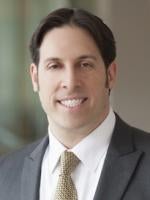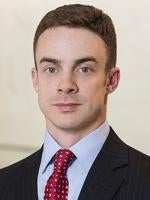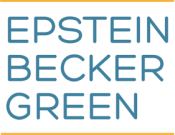Legislative Activity
House Bi-Partisan Encryption Working Group Releases Roadmap
On April 21, the U.S. House of Representatives (House) Bi-Partisan Encryption Working Group (Working Group) announced its roadmap following a meeting to discuss the group’s goals. The Working Group, first announced in March 2016, is charged with examining the legal and policy issues surrounding the use of encryption and identifying potential solutions that both preserve the privacy of consumers and allow law enforcement reasonable tools to prevent crime and protect the public safety. According to the roadmap, members of the Working Group will conduct meetings with federal, state, and local governments, private industry, and trade associations, among other constituencies. In addition, the Working Group encouraged the general public to submit articles, papers, or testimony that may assist it in its efforts. The Working Group also intends to participate in site visits to conduct meetings and receive technical briefings. Finally, the Working Group intends to complete its task by the end of the current Congress, which will include providing its findings and recommendations to the House.
House Commerce Subcommittee Approves Seven Communications Bills
On April 19 the Subcommittee on Communications and Technology (Communications Subcommittee) of the House Energy and Commerce Committee (House Commerce Committee) approved seven communications bills following an April 13 hearing on those bills. The seven bills, previously discussed in greater detail here, are as follows:
-
H.R.2031, the Anti-Swatting Act of 2015, which enhanced penalties for those who use false or misleading caller identification (caller ID) information;
-
H.R.3998, the Securing Access to Networks in Disasters Act (SANDy Act), which would require mobile service providers to ensure that consumers have access to networks during disasters and also require the Federal Communications Commission (FCC) and the Government Accountability Office (GAO) to examine the resiliency of networks during such disasters;
-
H.R.4190, the Spectrum Challenge Prize of 2015 that creates a prize program through the National Telecommunications & Information Administration to award up to $5 million to participants who develop innovative and cost-effective solutions to maximize spectrum efficiency;
-
H.R.4111, the Rural Healthcare Connectivity Act of 2015, which would allow skilled nursing facilities to apply for support from the Universal Service Fund’s Rural Health Care Program (RHCP);
-
H.R.4167, Kari’s Law Act of 2015, which would require multi-line telephone systems, usually found in schools, offices, hotels, or hospitals to connect directly to 911 when dialed even in situations where the phone requires the user to dial another number to get an outside line;
-
H.R.4884, the Controlling the Unchecked and Reckless Ballooning of Lifeline (CURB) Act of 2016, which would reform the FCC’s Lifeline program by capping the fund at $1.5 billion, prohibiting the use of the subsidy for devices, and phasing out the subsidy for voice only mobile service; and
-
H.R.4889, the Kelsey Smith Act of 2016 that would require telecommunications carriers to share call location information with law enforcement in emergency situations.
The bills now go to the full House Commerce Committee for consideration.
Regulatory Activity
FCC Releases Final Agenda for April 28 Open Meeting
On April 21, the FCC released its final agenda for the agency’s April 28 Open Meeting. The FCC will consider the following items:
-
Transition from TTY to Real-Time Text Technology. The FCC will consider a Notice of Proposed Rulemaking that “seeks comment on proposals to support real-time text communications over Internet Protocol communications networks, to improve the accessibility of these networks for consumers who are deaf, deaf-blind, and speech disabled.”
-
Business Data Services in an Internet Protocol Environment. The FCC will consider a Tariff Investigation Order and a Further Notice of Proposed Rulemaking “proposing a new regulatory framework for the provision of business data services.”
-
Amendment of the Commission’s Rules with Regard to Commercial Operations in the 3550-3650 MHz Band. The FCC will consider an Order on Reconsideration and a Second Report and Order that “will finalize rules for the innovative spectrum sharing regime it created for making 150 MHz available in the 3.5 GHz band.”
FCC Seeks Additional Comment on Petition to Allocate the 1675-1680 MHz Band for Non-Federal Terrestrial Mobile Use
On November 2, 2012, LightSquared Subsidiary LLC (LightSquared, now Ligado) filed a petition asking the FCC to “initiate a rulemaking proceeding to . . . permit[] non-Federal terrestrial mobile use of the 1675-1680 MHz band” on a shared basis with federal users. LightSquared states that grant of its petition would serve the public interest by increasing the spectrum available for mobile broadband services. The company proposes that the “additional use of the 1675-1680 band” would be permitted “only if such use is coordinated to protect government systems that will remain in the band, including the critical weather and predicting operations of the National Oceanic and Atmospheric Administration.” Per an April 22 Public Notice (PN), the FCC sought comment on LightSquared’s petition in 2012, and is now seeking to “update and refresh the record” (the PN notes that LightSquared has made a number of related filings subsequent to its original petition, and seeks comment on those filings as well). In the PN, the FCC states that it is specifically seeking comment on “potentially providing a primary terrestrial non-federal mobile service allocation in the 1675-1680 MHz band and establishing terrestrial service rules for shared federal/non-federal operations in this band.” Comments are due June 21, and reply comments are due July 21.
FCC to Hold Broadband Health Conference in Houston, Texas on May 18
The FCC has announced that on May 18, the agency’s “Connect2Health Task Force will travel to Houston, Texas to highlight how broadband-enabled health technologies can improve access to mental health care and to discuss associated policy issues,” per an April 22 Public Notice (PN). The Connect2Health Task Force was created by the FCC in 2014 to “accelerate the adoption of health care technologies by leveraging broadband and other next-gen communications services,” according to a 2014 FCC News Release. The conference, titled “Broadband Prescriptions for Mental Health,” will be hosted by the University of Houston Law Center’s Health Law & Policy Institute. Featured speakers include “FCC Commissioner Mignon Clyburn; University of Houston Law Center Dean Leonard M. Baynes; Former Astronaut and CEO of Vesalius Ventures Dr. Bernard A. Harris, Jr.; University of Texas Rio Grande Valley School of Medicine Dean Francisco Fernandez; and the Connect2Health Task Force, among others.” A detailed agenda will be released at a later date, and details will be posted to the Connect2Health website, according to the PN.





 />i
/>i


